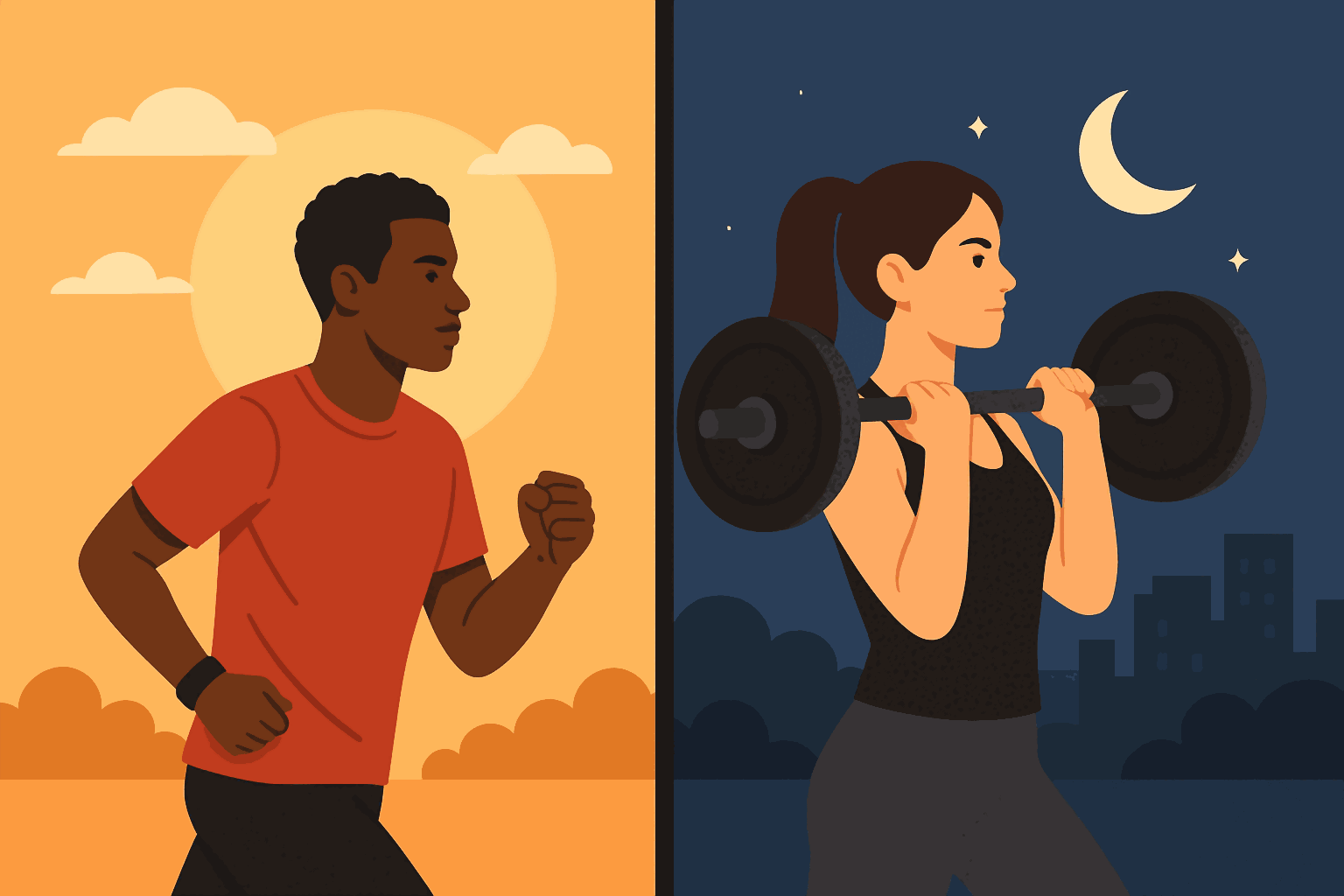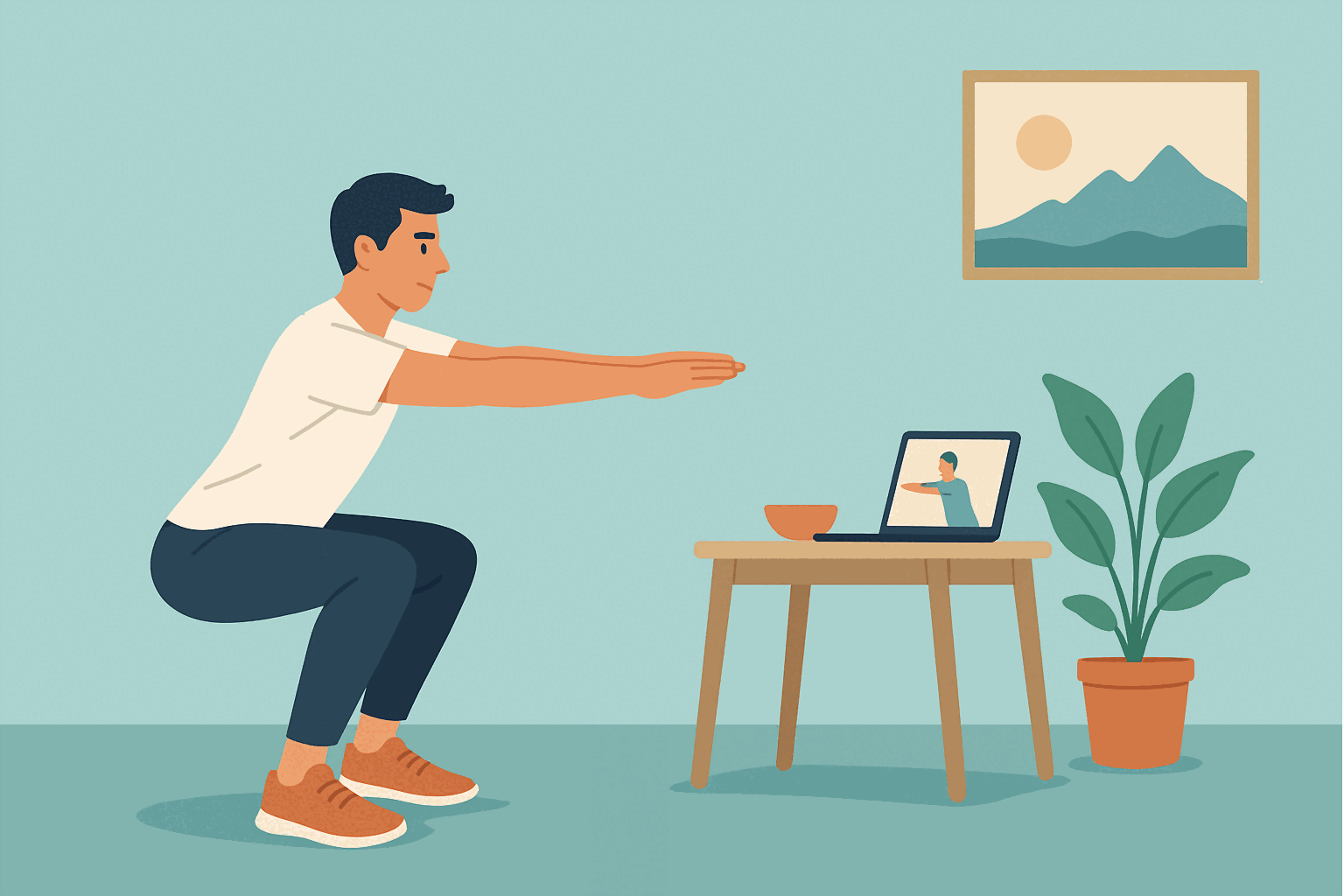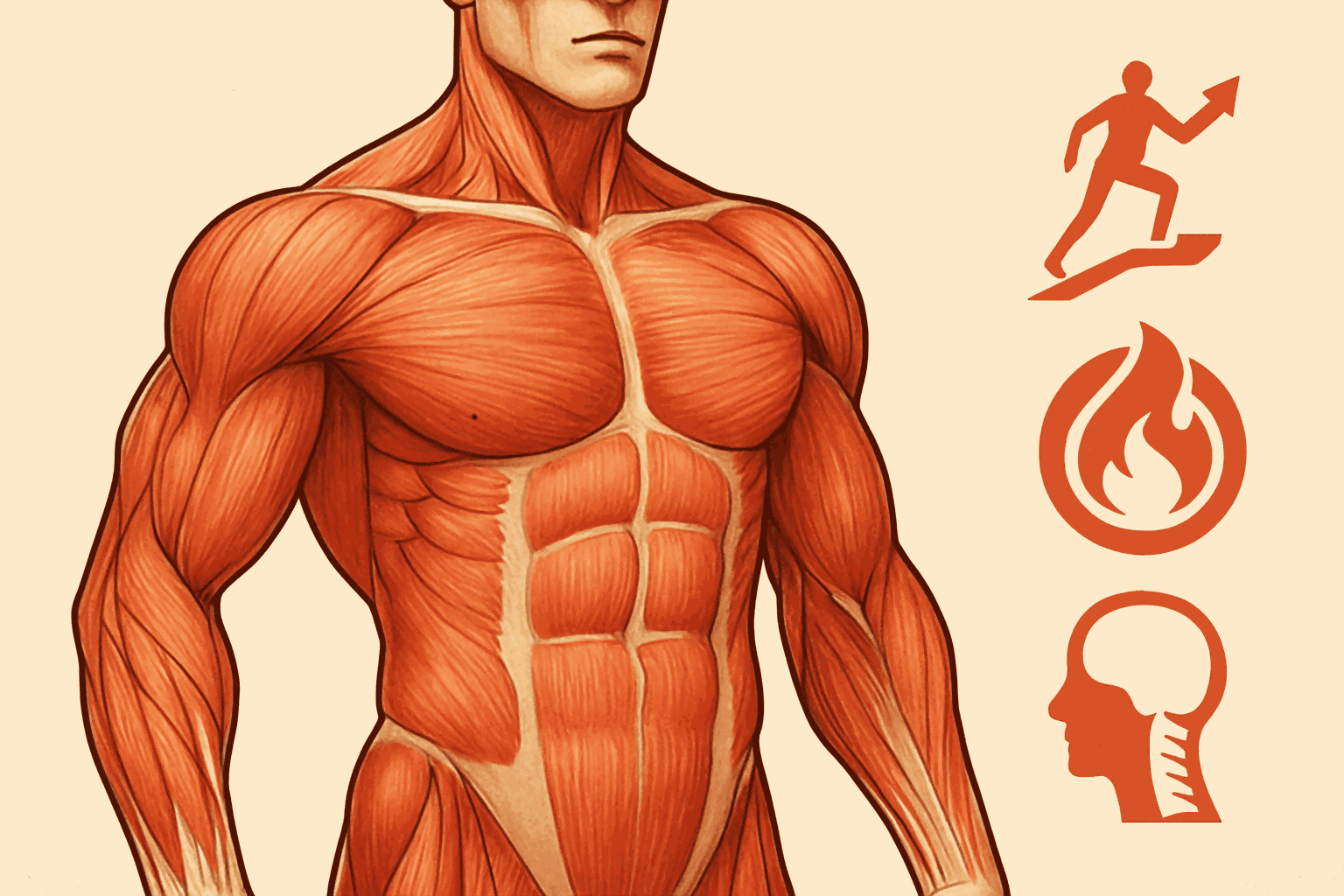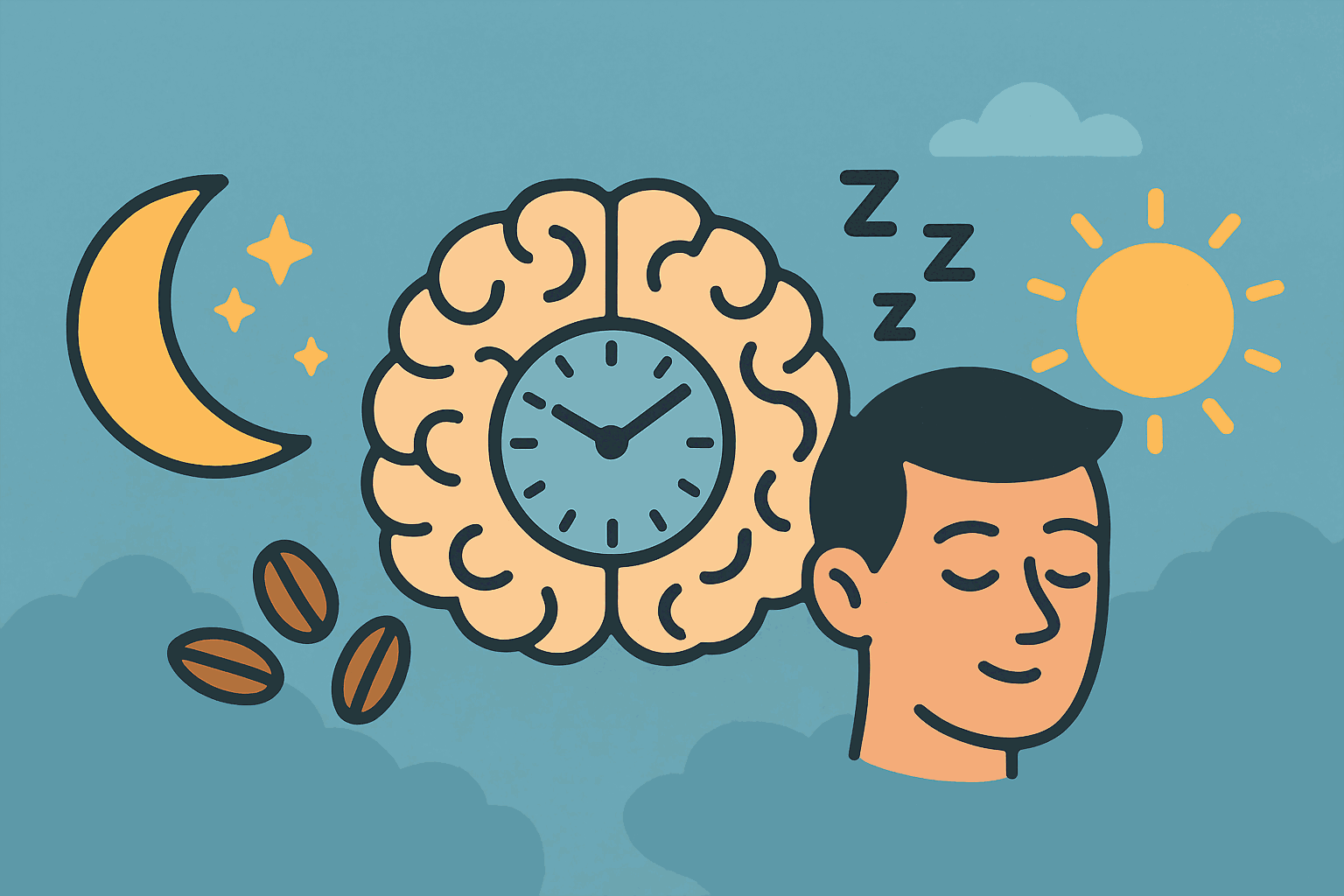
Morning vs. Evening Workouts: Unveiling the Optimal Time to Exercise
- Marcus Reed
- Fitness , Exercise science , Health , Chronobiology
- May 8, 2025
Table of Contents
Fast Facts: Workout Timing TLDR
- Consistency is King: Regular exercise at any time is more beneficial than sporadic “perfectly timed” workouts.
- No Universal “Best” Time: The ideal workout time varies based on individual goals, body clocks, and lifestyles.
- Morning Perks: May offer a slight edge for fat burning and metabolic benefits in some individuals, and can help with schedule consistency.
- Evening Advantages: Often aligns with peak physical performance (strength, power) and can be a great way to de-stress.
- Metabolic Health Nuances: Morning exercise might be beneficial for fat oxidation and mitochondrial health in obesity, while some research suggests evening exercise could be better for aspects of glycemic control in type 2 diabetes.
- Sleep Impact: Exercise generally improves sleep; avoid very intense workouts 1-2 hours before bed if you’re sensitive.
- Listen to Your Body: Your personal energy levels and preferences (chronotype) are strong indicators of your best workout window.
Morning vs. Evening: When is it Truly Better to Exercise?
The age-old debate: should you leap out of bed and into your trainers, or is a post-work sweat session the superior choice? Many believe morning workouts reign supreme, a golden ticket to health and productivity. However, for “night owls” and those with demanding mornings, this notion can feel more like a guilt trip than a guiding principle.
The good news? Science suggests that the quest for a universally “best” time to exercise might be missing the forest for the trees. While specific timings can offer nuanced benefits, the pillars of regularity, appropriate intensity, and alignment with your personal goals and overall health are far more critical for long-term fitness success.
Let’s delve into the evidence-based pros and cons of morning and evening workouts to help you decide what works best for your body and lifestyle.
The Case for Kickstarting Your Day: Morning Workouts
Exercising in the morning hours has several potential advantages:
- Enhanced Metabolic Profile & Fat Burning: Some research indicates that morning exercise, particularly in a fasted state or for individuals with obesity, may lead to greater fat oxidation throughout the day. A 2024 study published in The Journal of Physiology found that morning exercise had a greater impact on 24-hour fat oxidation in men with overweight/obesity [1]. Similarly, a 2020 study highlighted in PMC showed that morning training elicits magnified adipose tissue mitochondrial remodelling in obese women, crucial for energy production and metabolic health [2].
- Improved Insulin Sensitivity: Morning workouts could be particularly beneficial for individuals managing metabolic conditions. The same 2020 research suggests mechanisms related to improved insulin sensitivity and circadian rhythm synchronization [2].
- Boosted Consistency: For many, morning workouts mean fewer scheduling conflicts. Life’s unexpected demands are less likely to derail a workout that’s already completed. This “get it done” approach can foster long-term adherence.
- Potential Cognitive Benefits: Exercise at any time can boost mood and alertness, but a morning session can set a positive tone for the entire day.
The Power of Winding Down: Evening Workouts
Don’t discount the benefits of exercising later in the day:
- Peak Physical Performance: Physiologically, your body might be primed for peak performance in the late afternoon and early evening. Core body temperature is higher, which can improve muscle function, strength, and power output, potentially reducing injury risk [3].
- Stress Reduction: An evening workout can be an excellent way to shed the stress accumulated throughout the day, promoting mental relaxation.
- Better Glycemic Control for Some: Interestingly, while some studies point to morning benefits for aspects of metabolic health, a 2022 study in Nutrients found that evening exercise training was more effective in reducing HbA1c and fasting insulin levels than morning exercise in individuals with type 2 diabetes [4].
- Flexibility and Strength Gains: Increased body temperature later in the day can make stretching and strength-focused workouts feel more effective for some.
Hormonal Harmony: Cortisol, Growth Hormone, and Exercise Timing
The “stress hormone” cortisol naturally peaks in the morning, known as the Cortisol Awakening Response (CAR), helping you wake up. Exercise also causes a temporary rise in cortisol, which is a normal adaptive response that helps mobilize energy.
- Morning Exercise & Cortisol: While exercising in the morning adds to this natural peak, for most healthy individuals, this is not a concern and is part of the body’s natural rhythm. The key is managing chronic stress and allowing for adequate recovery, rather than fearing the acute cortisol response to exercise [5]. The original article’s concern about morning cortisol “reducing the effect of physical activity and increasing the risk of overfatigue” might be overstated for well-managed training. Overtraining, regardless of timing, is the more likely culprit for chronic fatigue.
- Growth Hormone: Exercise stimulates growth hormone (GH) release, which is vital for muscle repair and growth. Some research suggests that resistance training in the evening might coincide with more favorable testosterone-to-cortisol ratios for muscle building, though consistency and overall training volume are more significant factors [6].
Exercise Timing and Your Sleep Quality
A common concern is whether evening workouts interfere with sleep.
- Generally Positive Impact: Most research, including a 2019 meta-analysis in Sports Medicine, indicates that evening exercise is generally beneficial for sleep quality and duration [7]. It can lead to deeper, more restorative sleep for many.
- The “Too Close to Bedtime” Caveat: The primary exception is very high-intensity exercise (like HIIT) performed within an hour or two before sleep. This can delay sleep onset for some sensitive individuals due to increased heart rate and alertness.
- Listen to Your Body: If you find evening workouts energize you too much, try shifting them a bit earlier or opting for more calming activities like yoga or stretching before bed. While a study by Kovacevic et al. (2021) compared morning vs. evening HIIT for body composition and cardiometabolic factors [9], the broader consensus from sleep-specific research, such as Stutz et al. (2019), supports evening exercise’s compatibility with good sleep when timed appropriately [7].
Metabolic Health: A Closer Look at Timing for Specific Conditions
As touched upon, workout timing might hold more specific relevance for individuals with certain metabolic conditions:
- Type 2 Diabetes: While some research points to morning exercise benefits for aspects like mitochondrial health [2], the Alhussain et al. (2022) study found evening exercise more beneficial for improving HbA1c and fasting insulin in individuals with type 2 diabetes [4]. This highlights the need for personalized approaches and ongoing research to clarify optimal timing for glycemic control.
- Obesity and Fat Metabolism: Morning exercise appears to have an edge in enhancing 24-hour fat oxidation and improving mitochondrial function in adipose tissue, particularly in individuals with overweight or obesity [1, 2].
However, it’s crucial to remember that for overall metabolic health, the benefits of any regular physical activity typically outweigh the nuanced effects of timing. A study by Albracht et al. (2017) found little difference in certain inflammatory and cardiac markers based on morning versus evening moderate-intensity exercise [8].
Your Internal Clock: The Importance of Chronotype and Personal Preference
Perhaps the most practical advice comes down to your individual chronotype—whether you’re a “morning lark” or a “night owl”—and simple preference.
- Morning Larks: Naturally feel more energetic and alert in the morning, making it an ideal time to exercise.
- Night Owls: May struggle with morning workouts but find their stride and energy peak in the afternoon or evening.
- Adherence is Key: Forcing yourself to exercise at a time that consistently feels like a struggle will likely lead to burnout and skipped workouts. The best time to exercise is the time you can consistently commit to and genuinely enjoy (or at least tolerate well!).
Practical Takeaways: Choosing Your Optimal Workout Window
- Prioritize Consistency: Choose a time that fits reliably into your schedule.
- Align with Your Goals:
- Weight Management: Morning may offer a slight fat-burning advantage, but total daily energy expenditure and diet are paramount.
- Muscle Gain: Evening might align with strength peaks, but consistent progressive overload and nutrition are key.
- Performance for a Specific Event: Try to train around the time your event will occur.
- General Health: Any time you can consistently exercise is beneficial.
- Consider Your Chronotype: Work with your body’s natural energy rhythms, not against them.
- Experiment: Try different times of day for a week or two each and see how you feel, perform, and sleep.
- Be Flexible: Life happens. If you miss your usual slot, a workout at a different time is better than no workout at all.
Conclusion: The Best Time to Exercise is When You Actually Do It
While the science offers intriguing insights into the subtle advantages of morning or evening workouts for specific outcomes or populations, the overwhelming consensus is that consistency and overall physical activity volume are the most powerful determinants of your fitness success and health benefits.
Don’t let the “perfect” be the enemy of the good. Instead of stressing over the clock, focus on finding a sustainable routine that you enjoy and that supports your individual goals. Whether you’re an early bird hitting the pavement or a night owl unwinding with weights, the most effective workout is the one you stick with.
Disclaimer
The information provided on BioBrain is intended for educational purposes only and is grounded in science, common sense, and evidence-based medicine. It is not a substitute for professional medical advice, diagnosis, or treatment. Always consult a qualified healthcare provider before making significant changes to your diet, exercise routine, or overall health plan.
References
- Teo, W., Wasserman, D. H., & O'Sullivan, J. F. (2024) "Morning exercise has a greater impact on 24-hour fat oxidation than matched evening exercise in men with overweight/obesity"
- Sabag, A., Way, K. L., Keating, S. E., Sultana, R. N., O'Connor, H. T., Baker, M. K., ... & Johnson, N. A. (2020) "Exercise training elicits magnified adipose tissue mitochondrial remodelling in obese women when performed in the morning"
- Reilly, T., Atkinson, G., Edwards, B., Waterhouse, J., Farrelly, K., & Fairhurst, E. (2007) "Diurnal variation in temperature, mental and physical performance: implications for shiftwork and athletic competition"
- Alhussain, M. H., Macdonald, I. A., & Slevin, M. (2022) "The Effect of Morning vs. Evening Exercise Training on Glycemic Control and Serum Adipocytokines in Individuals with Type 2 Diabetes Mellitus"
- Hackney, A. C., Dittrich, S., & Atashak, S. (2019) "Timing of exercise and its influence on Eeff-effector and regulatory immune cell responses"
- Kraemer, W. J., & Ratamess, N. A. (2005) "Hormonal responses and adaptations to resistance exercise and training"
- Stutz, J., Eiholzer, R., & Spengler, C. M. (2019) "Effects of Evening Exercise on Sleep in Healthy Participants: A Systematic Review and Meta-Analysis"
- Albracht, K., Baur, D. A., Dykstra Volz, L., & Zavorsky, G. S. (2017) "The effect of moderate intensity exercise in the morning or evening on B-type natriuretic peptide, N-terminal pro-B-type natriuretic peptide and C-reactive protein"
- Kovacevic, A., Mavropoulos, Y., Norum, M., Blazek, A.D., Tjønna, A.E., Stølen, T.O. (2021) "Twelve weeks of time-of-day specific HIIT and moderate intensity continuous training on body composition and cardiometabolic risk factors in healthy men and women (The MyoMove study): A randomized controlled trial"
Tags :
- Exercise timing
- Morning workout
- Evening workout
- Metabolic health
- Sleep quality
- Cortisol
- Chronotype
- Fitness goals
- Evidence based fitness


